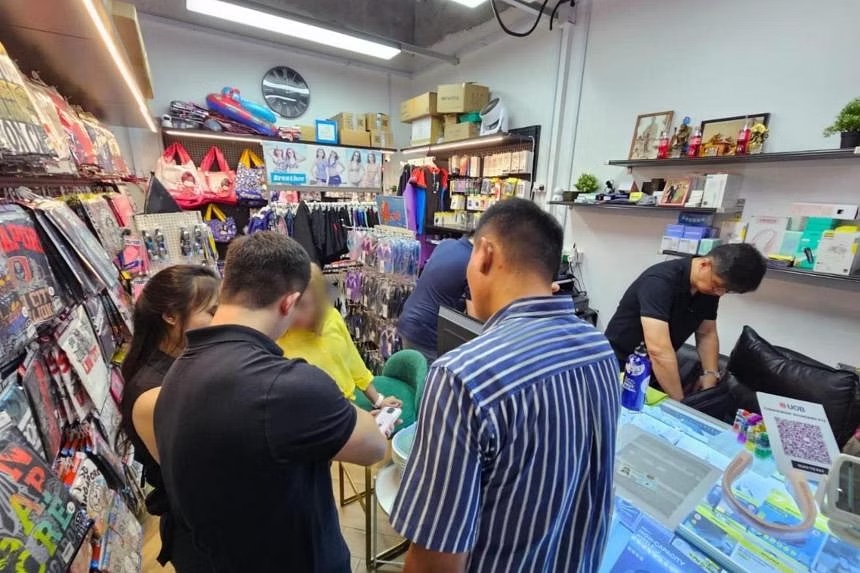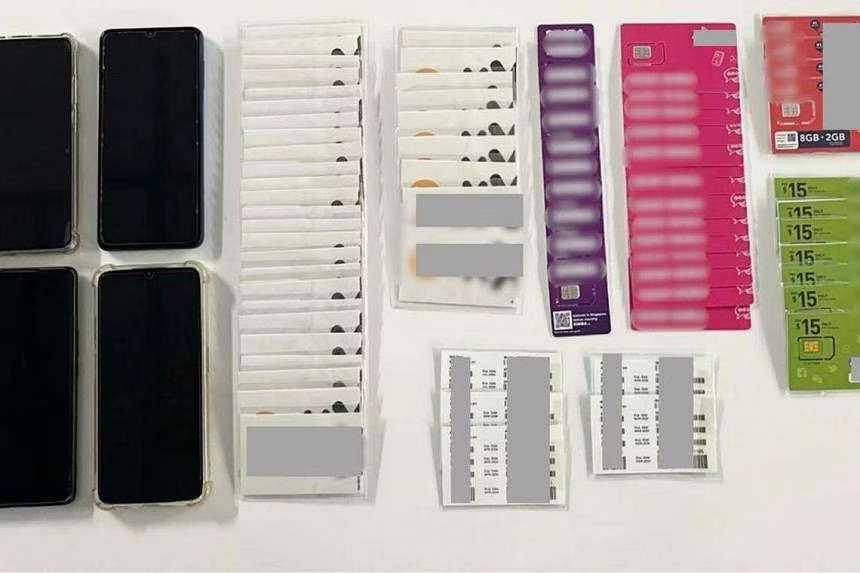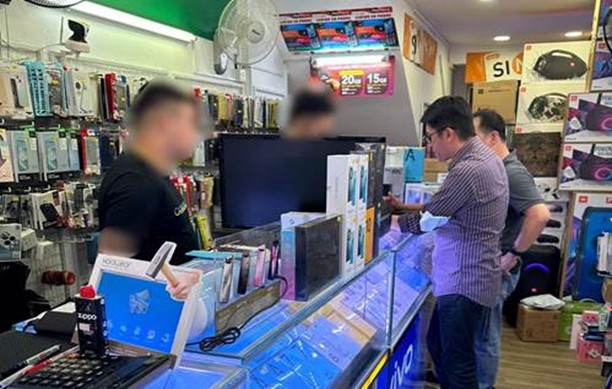13 people are currently under investigation for fraudulently registering post-paid SIM cards.
Huh? Gong simi?
It just means registering post-paid SIM cards under the names of unsuspecting people—the actual users of these SIM cards are not the names under which the SIM cards are registered to.
It’s sort of like registering a Netflix account under your friend’s name even though you’re the actual account user, although we don’t understand why you would do that for Netflix.
Here’s why it’s a problem that post-paid SIM cards are being fraudulently registered in this manner.
13 People Investigated for Fraudulent Registration of Post-Paid SIM Cards
A two-day islandwide raid was conducted by the Singapore Police Force (SPF) on Thursday (12 October) and Friday (13 October).
The reason for the raid? To investigate mobile phone shops that fraudulently use unsuspecting people’s details to register post-paid SIM cards.
Eight mobile phone shops in Ang Mo Kio, Woodlands, Admiralty, Beach Road, Selegie Road, and Indus Road were raided by police officers from the Anti-Scam Command office.

Oh, and of course, Yishun as well.

Four men aged between 25 and 44 were arrested for their suspected involvement in fraudulent registration of post-paid SIM cards. Another nine individuals, among them six men and three women, are currently assisting with investigations.


That brings the number of people currently being investigated to a total of 13 individuals.

The police also seized mobile phones and SIM cards during the raid.
Why Fraudulent Registration of Post-Paid SIM Cards is a Problem
You might be thinking: Huh? It’s just registering a SIM card what. Why is it such a big deal?
Well, there’s always more to it lah.
Say, for instance, you’re an unsuspecting customer whose information is in the computer system for post-paid SIM cards.
Ah Tan from the Yishun mobile phone store decides to access this system and uses your information to pre-register a post-paid SIM card. Ah Tan then sells this SIM card to Ah Hock because Ah Hock wants to sell durians to aunties on Facebook. But here’s the catch—Ah Hock is planning to scam these aunties, so he needs a SIM card that isn’t traceable to him.
Instead, the SIM card is only traceable to you, the unsuspecting customer.
Problematic? Of course lah.
These fraudulently registered SIM cards are usually sold to customers like Ah Hock who want to conceal their identities. They are used as an anonymous communication channel by such individuals for various illicit activities.
This includes unlicensed moneylending, scams, and vices. Even scam syndicates deploy this method to maintain anonymity and stay under the radar.
That’s why police are targeting these mobile phone retailers, to get to the root of the problem.
14 People Investigated in March for Fraudulently Registering Post-Paid SIM Cards
This is far from the first time the SPF has conducted such a raid. In late March, the police conducted an islandwide raid targeting eight handphone shops for the fraudulent registration of post-paid SIM cards.

Three men were arrested, and eleven other individuals assisted with investigations. This means 14 individuals were being investigated pursuant to this raid.
For modifying computer materials without authorisation, one can be fined up to $10,000, jailed up to three years, or both.
Don’t play play already.




